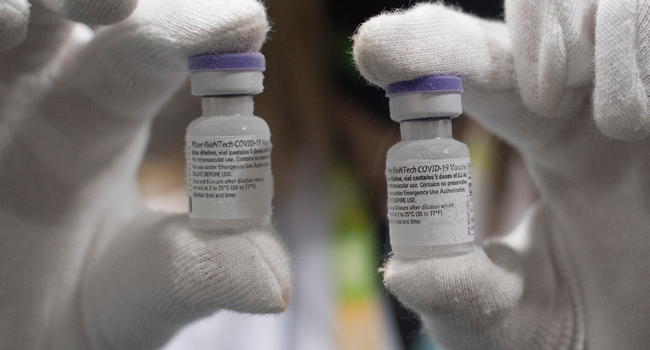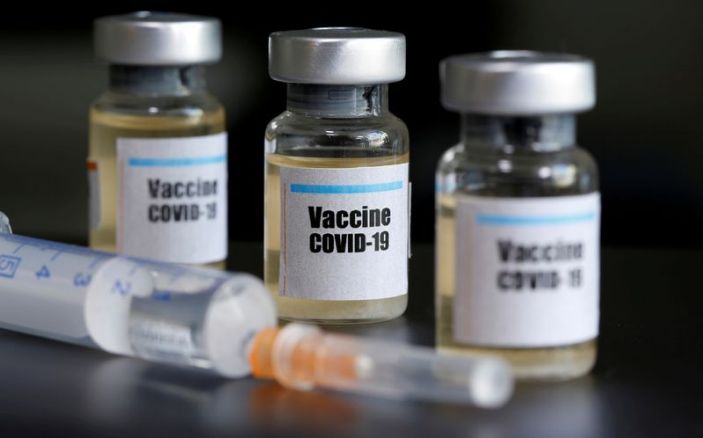
JORGE GUERRERO / AFP
Nigeria has secured an additional 41 million doses of COVID-19 vaccines, the Minister of Health, Osagie Ehanire, said on Thursday.
However, the date of the vaccine’s delivery into the country remains unknown as vaccine manufacturers struggle to meet global demand in time.
“We do not have an exact date,” Dr Ehanire said during an appearance on Channels Television’s Politics Today. “The date it comes out depends on when the manufacturers are able to deliver, and that is not something that any country can enforce at this time.”
The 41 million doses were secured as part of efforts by an African Union task team to help countries on the continent gain equitable access to vaccines.
The AU earlier on Thursday had announced that it had secured an additional 400 million doses of the vaccines for the continent.
This comes on top of an earlier announcement by the AU that it had secured 270 million vaccine doses.
Many African countries, including Nigeria, are yet to start vaccination programs even as the number of COVID-19 cases continues to rise across the continent.
Nigeria was expected to take delivery of 100,000 vaccine doses via the WHO-backed Covax sharing facility by the end of January, but the timeline has now been shifted to February, Minister Ehanire confirmed on Thursday.
“The timelines are not in the hands of the recipient,” he stressed, noting that blocs like the European Union who had preordered vaccines since last year were yet to get enough supply.
Who pays?
The 41 million vaccine doses are expected to come from three major sources: Pfizer, AstraZeneca (through the Serum Institute of India), and Johnson & Johnson.
Because most African countries fall under the class of middle and low-income countries, the purchase of the vaccines will be financed by the African Export–Import Bank, also known as Afreximbank.
However, countries are expected to make a down-payment of about 15 per cent and repay the cost over a five to seven-year period.
“Nigeria is mobilising resources,” Minister Ehanire said. “We have some funds ready. We will make a substantial deposit when it is time.”
Meanwhile, the Covax vaccines expected in February are expected to be free, for the first 20 percent of the population. But the country will pay for the “logistics of delivery and administration.” (Channels Tv)














